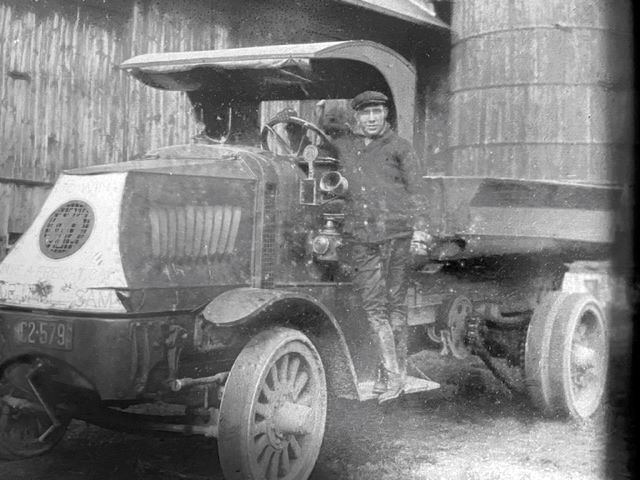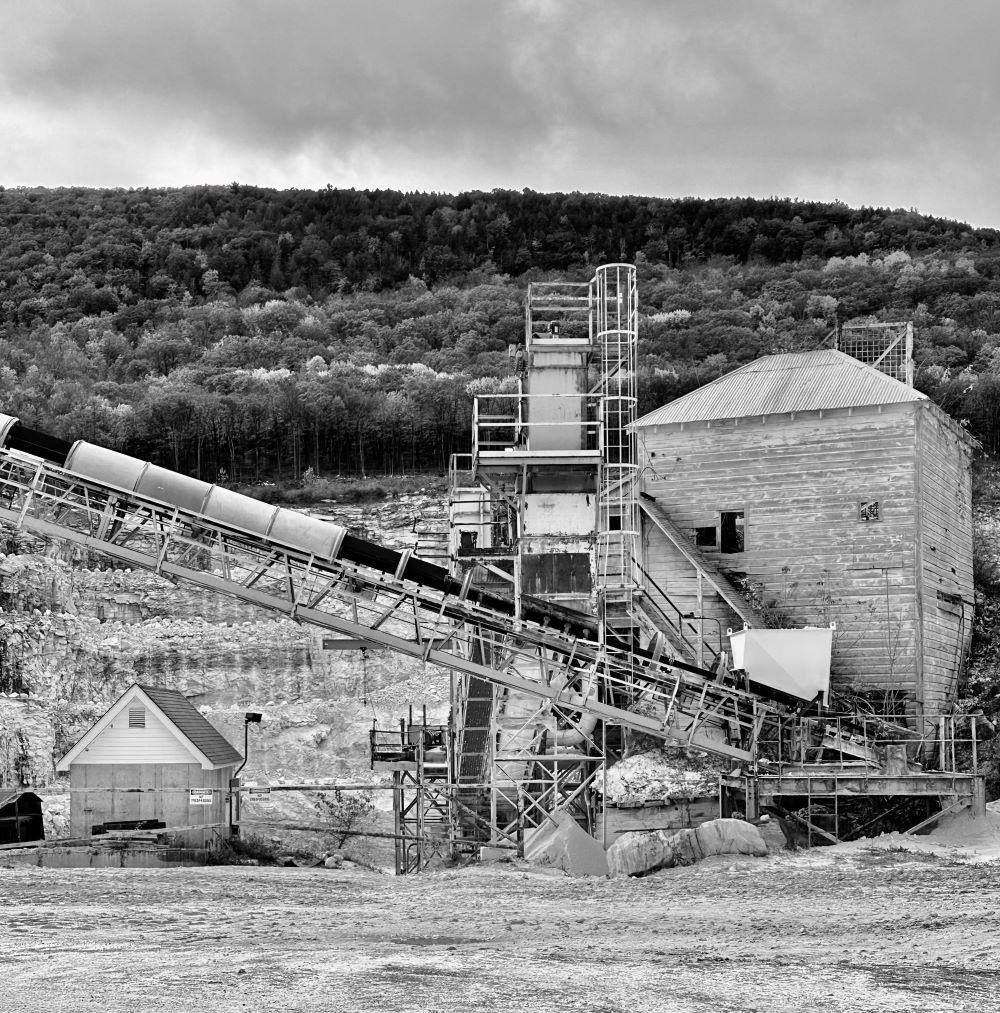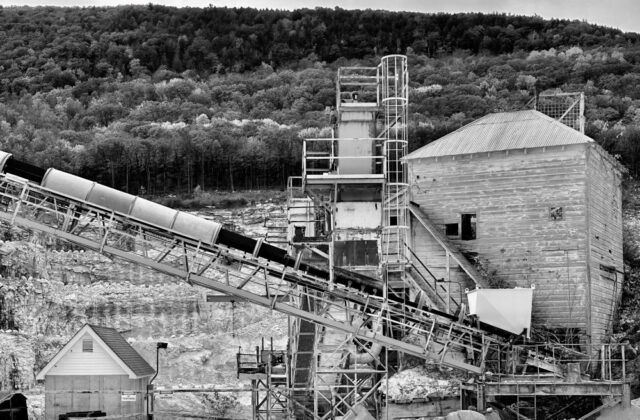Out and About: Mining a Family’s History in the Hills of North Canaan
By Jude Mead
Limestone quarries have played an essential role in the economic history of the Northwest Corner. Tim Hitchcock, a local resident, and his ancestors have been an important part of that history since the 1800s. Six generations of his family have lived and watched the town of North Canaan grow and change over the years.
“I would say my connection to the quarries began in 1899 when my great-grandfather, Frank Hitchcock, purchased a dairy farm along the Blackberry River,” said Hitchcock. “At that time, 85 percent of Americans were farmers, but Frank knew it wasn’t going to stay that way. When the Industrial Revolution hit Canaan, he made good use of the opportunities that came his way, especially when the limestone quarries opened.”
Before his involvement with the quarries, Hitchcock explained, his great-grandfather farmed his land. “For many years, he raised dairy cows and invested his earnings in milk wagons and work horses. He sold milk, butter, cream and firewood. Making a living at farming was difficult, so my great-grandfather hired his horses out to other farmers who were still cultivating by hand.”

Photo courtesy of Tim Hitchcock.
By the 1920s, the Industrial Revolution had begun to take hold in Canaan. The railroad, the cotton gin, electricity and stricter regulatory requirements for large livestock farms were altering the traditional agricultural scene. Said Hitchcock, “Definitely, times were changing. Then my great-grandfather passed away, and his son, Con Hitchcock, my grandfather, took over the business. Con saw an opportunity and turned the dairy farm into a sand and gravel operation.”
Taking his life savings along with a leap of faith, Con Hitchcock purchased trucks and other equipment and proceeded to mine his land for nearly a decade until he reached its edge at the river. It was then, continued Hitchcock, that his grandfather developed a novel idea. “It was the early 1930s and the railroad was bringing in more people. The place was becoming a summer colony and building up fast. Though my grandfather couldn’t dig sand and gravel anymore, he still saw his land as valuable. With the village thriving, he took advantage of the times and developed a nine-hole golf course on the farm.”
Con Hitchcock developed the Canaan Golf Club in 1932, and although it was sold during the war, it remains a part of the community today as the Canaan Country Club.
“Though the golf club was a success,” said Hitchcock, “my grandfather was still left with a surplus of trucks from the sand and gravel business that needed to be utilized. The local limestone quarries were starting to boom, and my grandfather saw that they needed to move their products.”
Limestone was in demand for its numerous uses in building materials and road construction. More quarries were dug, and limestone slabs were processed into smaller pieces which needed to be transported. Hitchcock’s grandfather, and his great-uncle Sam, had found the perfect fit for their surplus trucks. In 1933, the Hitchcock Bothers trucking company was born.
After the death in 1940 of Con Hitchcock, his wife, Agnes, stepped in to run the business along with their teenaged son, Tim’s father, C. Frank Hitchcock. Together, they built Hitchcock Brothers into a strong local company. Said Hitchcock, “As the lime quarries continued to prosper, the trucking company did as well. In 1983, I took over as president and my brother joined me. We continued to run Hitchcock Brothers until it was sold in 2007.”
Many limestone quarries still flourish in Canaan today, providing an important resource. The materials gathered from these large pits are central to daily life. Limestone is not only used in construction but can be found in medicine, makeup, toothpaste, paint, household cleaners and even nutritional supplements and animal feed. Famous buildings like the Empire State Building and Yankee Stadium were built from limestone.
The economic history of the Hitchcock family parallels in many ways that of their town. Mining remains an industrial staple of the region, and local quarries continue, for the Hitchcocks and many others, to be a rock-solid link to a long-standing way of life.

Photo by Jude Mead.

